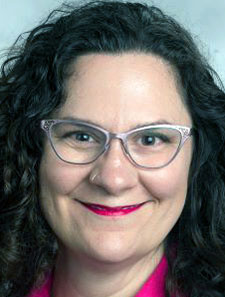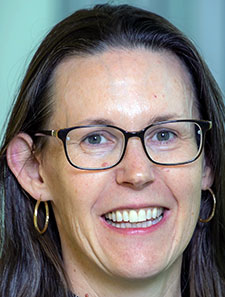 It is highly unlikely that any hospitalist, academic or otherwise, has ever complained that they have too much time for writing or that writing is too easy. Even professional writers often struggle to find and maintain a consistent writing discipline. Alex Arges, MD, a hospitalist at Emory University in Atlanta and a past participant in the challenge, said, “Allocating time to write is often a barrier for busy clinicians,” and hospitalists are some of the busiest, especially during service blocks.
It is highly unlikely that any hospitalist, academic or otherwise, has ever complained that they have too much time for writing or that writing is too easy. Even professional writers often struggle to find and maintain a consistent writing discipline. Alex Arges, MD, a hospitalist at Emory University in Atlanta and a past participant in the challenge, said, “Allocating time to write is often a barrier for busy clinicians,” and hospitalists are some of the busiest, especially during service blocks.
In 2021, Marisha Burden, MD, MBA, and Angela Keniston, PhD, MSPH, both of the University of Colorado at Anschutz in Aurora, Colo., co-founded the National Hospital Medicine Writing Challenge to inspire and encourage hospitalists and other hospital medicine staff to establish a daily writing practice through a light-hearted, friendly competition. They sought to build a community of hospitalists who wanted to write but were hesitant or who had trouble finding time to write, from seasoned hospital medicine scholars to people who have never written outside of school or work assignments in their lives.
The idea for the challenge emerged from the experiences of Drs. Burden and Keniston as part of the SHM Research Committee’s Innovations Subcommittee. They realized there was a significant need to foster scholarly writing and academic productivity for hospitalists—especially for those without previous experience or who were not comfortable with writing. They also recognized that even those with lots of writing experience often needed assistance holding space in their day for writing.
The first year of the challenge was co-sponsored by SHM and the University of Colorado, but later moved to UC’s website. Since the Challenge’s founding and first round in June 2021, more than 250 individuals have participated; many participate multiple times, with an average of 53 participants per round. Each year, in two rounds (one each in January and July), participants commit to write at least 400 words on at least four days a week for four weeks. Over the years, participants have written editorials, grants, research manuscripts, promotion dossiers, poems, and even chapters of a fantasy novel.
So what actually happens in the Challenge? There are two primary components: an online daily log to track words written and projects, and weekly virtual check-ins with current Challenge co-directors Angela Keniston, PhD, and Mary Ann Kirkconnell Hall, MPH, of the Emory University Division of Hospital Medicine in Atlanta.
Participants can log in daily to record their number of words, but also the number of separate projects they are working on. A leaderboard for both individuals and teams on the Challenge website is updated each week for the greatest number of writing sessions, number of words written, and number of different writing projects, and for the group or team with the greatest number of participants.
The invitations for the virtual check-ins are an hour long, with the first 20 minutes dedicated to the co-directors and participants sharing what they are working on and any challenges or successes they have experienced, and the remaining 40 minutes for dedicated, individual writing time.
The Challenge works to increase writing productivity both during and after the four official weeks of the challenge. Dr. Keniston and colleagues found that 68% of participants increased their writing during the 2021 challenge, and half planned to publish their work in the future.1 Participants also find that the Challenge can be both an opportunity to set goals and to collaborate. Dr. Arges said, “Participating in the writing challenge incited my competitive side and forced me to write regularly. I appreciated the camaraderie of working within a team at my institution.”
The Florida International University-Baptist Health (FIU-BH) PiñaMed team is a Challenge participation powerhouse. “The [National Hospital Medicine] Writing Challenge was a wonderful way to bond with scholars across the country with a common goal of dedicating some time every day to writing and scholarship. Just like going to the gym with a friend makes the workout more fun, being in a team motivated me to keep writing!” said Seema Chandra, MD. Tina Sanjar, MD, MBA, echoed the sentiment, commenting that “A writing challenge not only drives me to seek new writing opportunities for the sake of the competition but also transforms routine, mandatory, and otherwise mundane projects into fun, competitive pursuits. It turns a task into a game and drives you to want to write more to win!”
Others have found that the challenge has inspired them beyond just academic productivity and into creative writing, like FIU’s JoVonnda Chresfield, MBA. “As someone who almost lost her love for writing, this challenge was my push toward sustaining a daily habit,” she said. “I really enjoyed bonding with my teammates and testing new waters, like writing a perspective piece on the unique dual reality of being a patient and a healthcare professional. Just like tapping into new writing endeavors, I hope to eventually get back to previous loves like poetry.”
The Summer 2025 round of the National Hospital Medicine Writing Challenge will begin Monday, July 7, and registration will open one month earlier, on June 7. The Challenge will be a key initiative of the brand-new Research Special Interest Group at SHM Converge and beyond.

Ms. Hall

Dr. Keniston
Ms. Hall is the senior medical writer at Emory University’s Division of Hospital Medicine in Atlanta. Dr. Keniston is an assistant professor of hospital medicine and director of data and analytics at the University of Colorado Anschutz Medical Campus in Aurora, Colo.
References
- Keniston A, et al. Utilization of a national writing challenge to promote scholarly work: a pilot study. Cureus. 2022;14(2):e21935. doi:10.7759/cureus.21935.